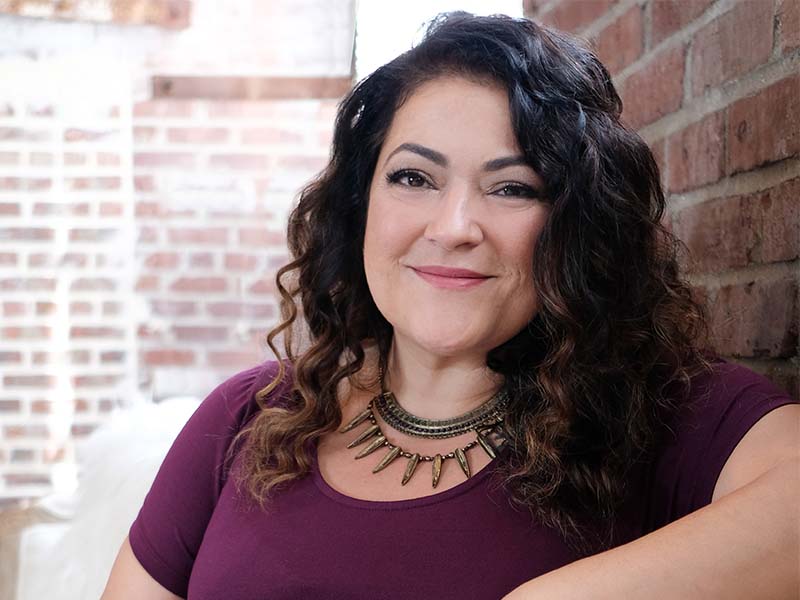Anneliese Singh joins Tulane faculty as chief diversity officer
August 15, 2020
The Tulane Hullabaloo is a nonprofit newsroom that receives no funding from Tulane University. Consider subscribing today to support our mission.
Anneliese Singh began her new role at Tulane on July 20 with what she described as a “fast start.” Singh now serves as the university’s chief diversity officer and associate provost for diversity and faculty development. She will also work as a professor in the School of Social Work with an affiliation with Tulane’s psychology department.
Singh brings a unique perspective to the Tulane administration as a mixed race person of color who grew up in New Orleans and studied at Tulane as an undergraduate.
Learning more about resources available on campus and finding the areas that need further development have been Singh’s priorities during her first few weeks on the job. As the university’s chief diversity officer she will focus primarily on developing a culture of inclusivity on Tulane’s campus through faculty diversity and development.
When discussing equity, diversity and inclusion, Singh told The Hullabaloo that, “a huge part of doing EDI work is understanding what the culture and history of any institution is … history drives culture in any organization. Once you know the history and once everyone is educated, then you can start getting really intentional about building the kind of culture that you want in 2020.”
As a university located in New Orleans, a city with a population that is about 60% Black, Tulane, a university with a student body that is about 8% Black, has grappled with these contrasting demographics.
Discussing these statistics, Singh recognized that “any university that’s been started by a certain group of people that had access to power, privilege and advantage to begin those universities often don’t reflect who the people are in the city,” and posed a few questions that have informed her work at Tulane. “What are [Tulane’s] current partnerships?” Singh said. “Are they working? Do we have feedback loops built into those?”
Singh’s work will be centered around EDI science and working to study statistics surrounding discrepancies in the Tulane and greater New Orleans community. This work will aim to identify successful areas as well as areas that require improvement and new EDI partners that can be brought in.
“New Orleans is not in Tulane’s backyard, but Tulane is in the backyard of New Orleans,” Singh said.
Another focus of her work is active anti-racism. Singh said that this term has “sort of become a buzzword.” She emphasizes, however, that “really doing that work from a perspective that’s grounded in racial healing and racial liberation for all people” is central in her approach to her position.
Her book, “The Racial Healing Handbook: Practical Activities to Help You Challenge Privilege, Confront Systemic Racism, and Engage in Collective Healing,” provides “individual strategies to strategies like being a racial ally and engaging in collective racial healing,” Singh said.
Singh also has considerable experience working with the LGBTQ community through her independent research and as one of the primary investigators on the first federally funded longitudinal grant looking at transgender and nonbinary identity development and resilience. Her TED Talks on gender discuss gender roles and the importance of advocating for nonbinary and transgender people.
“We know from the research that by the time that [trans and nonbinary] people get onto campus it is likely that there has been at least one suicide attempt, or some type of suicidality that they’re dealing with,” Singh said. “So, when we engage in trans and nonbinary affirmative practices, we actually help them live.”
Singh cited Petey Peterson, the director of Tulane’s Office for Gender and Sexual Diversity, saying that there is a large increase in the number of self-identified queer, nonbinary and transgender students in the incoming class.
Singh noted that these numbers would not include queer and trans students who came to know who they are after they came to Tulane, implying an even greater presence of these individuals in the community.
Singh also emphasized the importance of educating faculty on how to avoid “gender microabuses” — similar to “racial microabuses,” a term coined by Dr. Ibram Kendi — such as misgendering or using the wrong pronouns for a student or peer.
According to Singh, these lessons are imperative for all EDI work because “when we start to get better about some of those gender affirming and inclusive practices, we signal to other groups on the margins that there are folks that are going to stand up for you.”
Dr. Singh noted that she is impressed with student and faculty leadership in EDI work that already exists at Tulane, and has seen encouraging signs of progress. In the past few weeks, she has taken time to meet individually with student and faculty leaders on campus, and plans to look to their leadership in finding a way forward.
“I’ve been really impressed that the senior administration is taking [the BSU’s 2020 Demands] very seriously, and I have been so grateful to meet with Black student leaders, and Black leaders in Africana studies,” Singh said. “We’re at a really important and pivotal moment in our history, herstory, and tstory at Tulane where we can engage not only the most courageous conversations, but probably the most life-affirming conversations that we can ever have. You know all the freedom fighters have prepared for this moment … there’s such an opportunity for us to keep waking up to these issues and experiences.”
























Leave a Comment